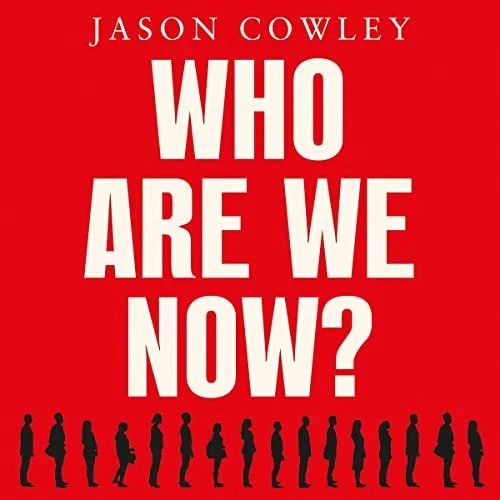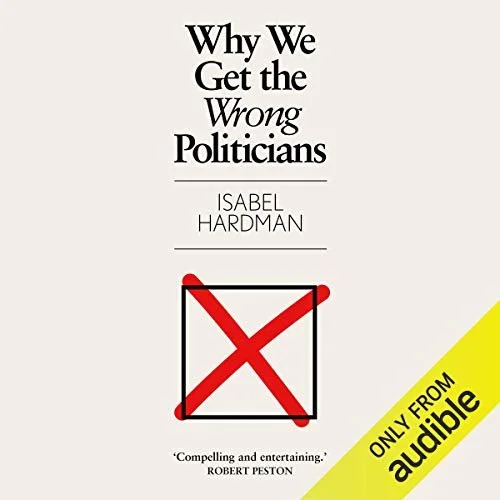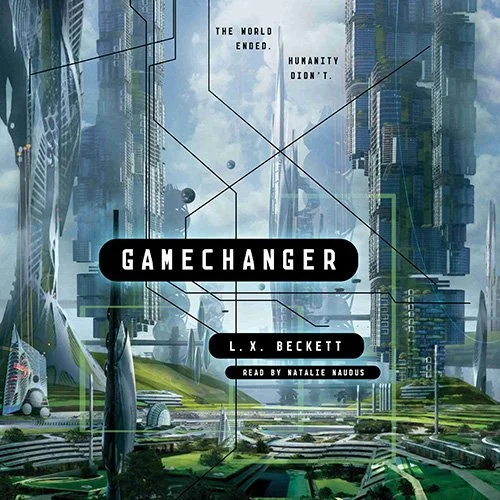Infomocracy makes the case for local governments in a globalised world
Of the many futures I have read about in science fiction novels, there are few like that of Infomocracy by Malka Older. A striking difference in her future world is that the governments of nations states, like that of the UK in our world, do not exist anymore. The world is divided into Sentinels consisting of 100,000 voters each, which elect their own government.
Large cities like London or Tokyo have many Sentinels in them; whereas in rural Australia a Sentinel can cover thousands of square miles. This is a fascinating vision of the future where all decisions are taken by hyper local government (Sentinels cover a smaller population than London boroughs).
The book left me thinking: could this be the solution to some of the problems in our world? Also, how did this world end up structured in such a way? How might we get to such a place?
The end point of devolution
Sentinels are more than local government. In the UK, local government is unpopular because it is bureaucratic, level taxes (always unpopular), is opaque, and part of a system of local governments across the country that’s needlessly complex. As a public affairs teacher told me once: “Local government is too complicated for people to understand. Every so often the government tries to make it simpler, but they only make it more complicated.”
Sentinels are not just local governments: they are governments that are local, not off in a remote capital city. As such they could be seen as the endpoint of devolution. In the UK, since the 90s, there has been a transfer of power from central government to regional assemblies, local police commissioners and metro-mayors. Whole areas of policy, such as health, education, transport planning, etc., have been transferred to the Scottish, Welsh and Northern Ireland assemblies.
This has happened during a period of increased activity from separatist movements, from Scotland to Catalonia. All over the world, people would rather be ruled by a small, closer to home government than a more distant one ruling over them and many more people. Making power local is seen as being more representative of local needs, as well as being more responsive to the will of the people.
How Britain falls apart
People are demanding decisions be taken at a more local level - and in the UK the government has been happy to oblige them - as people feel that larger national or central governments are not able to tackle many of the problems they face.
From environmental conservation, to providing jobs or public services, to tackling inequality or the cost-of-living crisis, many have lost faith in their government’s ability to tackle these problems and are turning to a more local solution. In some cases, the central government is blamed for creating these problems.
This is best documented by Tom McTague in an article for The Atlantic entitled How Britain Falls Apart. McTague travels around the UK and discovers a people who have lost faith in the idea of Britain as a nation. He writes:
“One of the problems in Britain is that the loss of faith in the country is now so pervasive that it is hard to know whether it can be rebuilt. The union is not only being questioned by Welsh, Irish, and Scottish nationalists, but also, now, by the once-unionist middle classes in England for whom Brexit has broken a bit of the faith they had in Britain. Some simply no longer believe it’s worth saving.”
Lack of legitimacy
McTague sees that the disillusion with Britain as a nation is most strong in Scotland, where there has been the most devolution. He described the situation in Scotland thus:
“Visiting Scotland today is to very obviously visit a land from which the British state has all but withdrawn. The national industries and national institutions that once existed have gone. By the time we arrived in Glasgow, we’d passed an abandoned British nuclear-research facility and an abandoned British military base. The only signs of the British state were the partially privatized post office, the pound, and the monarchy.”
In a world where people have stopped believing in the legitimacy of central government and are desiring - and in Scotland are getting - something not only more local but considered more legitimate, is a system of local Sentinels linked into a global confederation not only a better system but one that is bound to arise?
Franchised governments
As well as our world becoming more local, it’s also becoming more global. Better transportation connections and the spread of the Internet has meant that it’s easier to connect with people on the other side of the world, who share your interests and values, than with your neighbours, who in an increasingly atomised society do not. This can be the case regardless of geographical, cultural or language differences.
This globalised society is reflected in Infomocracy through franchised governments that stand for election in many Sentinels. Thus, the most popular governments (or more often they are types of governments as opposed to political parties) control many Sentinels all over the world.
A government like Liberty can be elected in Sentinels in Birmingham, Mumbai, Buenos Aires and Dubai, because the people in those Sentinels have the values of Liberty despite their different culture, language and location.
Sentinels and communes
Many Sentinels are run by a government that only stands in that Sentinel and is hyper local to that particular Sentinel. However, some governments control many thousands of Sentinels around the world. Elections to run all Sentinels are held every ten years and the government who wins the most Sentinels holds the Super Majority, which comes with additional powers.
The governments that we meet in Infomocracy conform to broad political philosophies that exist in our world. They are better understood as ways of running a government rather than a party or regime. Heritage, who hold the Super Majority at the beginning of the novel, are nativist and socially conservative. Liberty, who hold the second most Sentinels, have a libertarian political philosophy; they value the free market and offering a high degree of personal freedom. Policy First is a technocratic government.
The different governments have their own laws, rights and due processes, which makes them fundamentally different to political parties. In that regard, each government franchise is like a country in its own right, but they are also movements of political philosophy. The closest analogy in political philosophy is the communes described in Robert Nozick’s book Anarchy, The State and Utopia, where people are free to join or not join communes that have particular values whilst their basic rights are protected by the minimal state.
The Tyranny of the Majority
Our future could be one where the twin forces of globalisation and localisation mean the nation-state is no longer the ideal unit for a government and smaller, more local Sentinels replace it. Sentinels that can be networked together with other like-minded Sentinels to form global political movements.
It’s worth asking what type of franchised government could win a Super Majority in his system? To answer this, it’s worth referring to 19th Century French political philosopher Alexis de Tocqueville’s and his book Democracy in America. Tocqueville travelled around America, “the laboratory of democracy”, and studied what democracy was like in practice before it came to Europe.
One of his key ideas is the Tyranny of the Majority. Tocqueville saw a lot of energy on the surface of American democracy, but he thought that it was stable underneath because of the shared values of Americans and their shared belief in America. However, if people are too similar then democracy can lead to a Tyranny of the Majority.
Ancient fear
The Tyranny of the Majority was a smothering conformity that can arise from everyone thinking the same way and having shared values. It tut-tuts at difference, eccentrics and anyone who doesn’t fit in. This might not seem dangerous, but it can turn violent when the majority decide democratically to oppress people who are different.
The Tyranny of the Majority is the fear, common in ancient democracies, that the stupid, uncultured, poor many would use democracy to rule over the intelligent, cultured, wealthy few. There are classist assumptions to this, but the conforming nature of majority rule is a real problem. We need only look at British politics to see how dissenting, unpopular opinions are crowded out by a the small “c” conservative majority.
My worry would be that any franchise government that would appeal to enough people worldwide to win a Super Majority would have to conform to the Tyranny of the Majority and would look harshly on people who were different or eccentric. As a lifelong sore-thumb, I find this terrifying.
Faith in democracy
Between the rise of globalisation and the declining belief in the legitimacy of national governments to solve our problems, a world with hyper local governments that are franchised all over the world doesn’t seem as far-fetched as you would think at first. Maybe Infomocracy shows us a world where more people would have faith in their governments.
As problems with democracy, such as The Tyranny of the Majority, show this change in of itself is unlikely to fix all the world’s problems. It will also certainly create new problems of its own.
I still believe that there is a positive case for government to be more local and legitimate. Infomocracy shows how this could work and how it might restore some faith in democracy.




